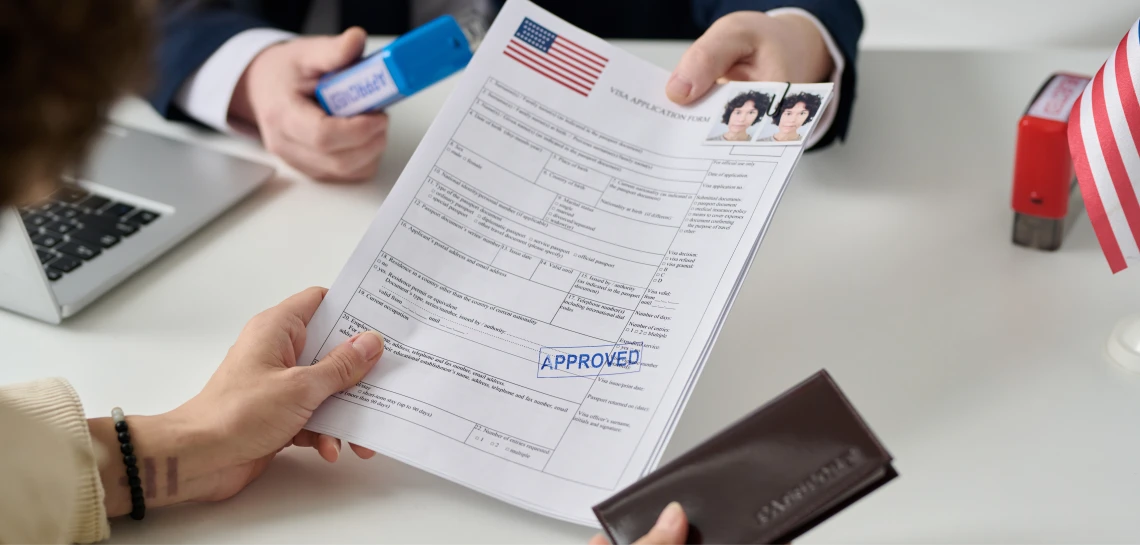
You can apply for U.S. citizenship if your eligibility is based on permanent residency for at least 5 years or 3 years if you are married to a U.S. resident. The individual may file form N-400, neutralization application, and the time limit is 90 days before you continuously complete resident requirements.
You may apply for U.S. citizenship if you have a green card or are a U.S. permanent resident. It is because it provides various advantages, such as the right to vote in U.S. elections, freedom from deportation, the ability to live abroad without losing your American status, and more.
However, there is an exception to applying for the U.S. citizenship. The exception is that no one can immediately apply for it after they receive their green card. Therefore, you need to know when you can apply. If you haven’t got a green card yet, you need to learn about how to get a green card in the U.S.
5 Years Permanent Residence Rule With Exceptions
A basic rule you must follow before applying for naturalization is that you must have lived in the United States for at least 5 years as a lawful permanent resident. This applies to exactly 5 years till the day.
Let’s understand this better with an example. Suppose you got approval for permanent residence on August 20, 2016, you will be eligible for citizenship on August 20, 2021. Therefore, you need to verify your exact date on the green card, also known as a permanent resident card.
If you initially obtain conditional residency, typically through marriage or an investor visa, the two years as a conditional resident count towards permanent residence, with the condition that you must successfully transition to permanent resident status at the end of this period.
Certain exceptions might shorten the waiting time, and you may be eligible to apply for naturalization even before the approval of your permanent residency, as explained in the article “Conditional Resident Awaiting I-751 Approval?
Consider Filing N-400 for Naturalization.” Exceptions may vary, but this provides an overview of potential pathways for civilians. For members or relatives of the U.S. Armed Forces, specific rights and considerations are outlined in “U.S. Citizenship Application Rights for Military Members and Veterans.”
What Is The 90-Day Early Application Rule For Submitting N-400?
While the requirement for naturalization is five years of permanent residence, you can submit your application to USCIS within the 90 days leading up to your fifth anniversary. This strategic timing allows for the lengthy processing of the N-400 form, fingerprinting arrangements, and interview scheduling, where USCIS reviews your application and tests your English and U.S. government knowledge.
USCIS takes at least 90 days to schedule the interview, making the 90-day window a safe period for application submission. Applying earlier than this timeframe will result in the return of your application, and you can use USCIS’s Early Filing Calculator for precise eligibility dates.
Five-Year Rule Exception for People Married To a U.S. Citizen
If you’ve been a permanent or conditional resident living with a U.S. citizen spouse for three years, you can apply for U.S. citizenship, even if your green card wasn’t obtained through the marriage. For instance, if you got your green card through employment and later married a U.S. citizen, you still only need to wait three years from the marriage date to apply for citizenship.
However, it’s crucial to remain married through the citizenship interview, approval, and oath ceremony; the exception won’t apply if you separate, divorce, or stop living with your spouse before becoming a citizen. Unfortunately, the exception is also void if your spouse dies before your naturalization interview. (Learn more on challenges faced by the immigrants in the U.S.)
Exception To Five-Year Naturalization Eligibility Rule for Refugees
Refugees may be eligible for an exception to the usual five-year residency requirement for naturalization in the United States. Under this exception, refugees can apply for U.S. citizenship after residing there for only one year.
This streamlined process recognizes the unique circumstances and challenges refugees face, offering an expedited path to citizenship to those seeking refuge in the United States.
Partial Exception To Five-Year Naturalization Eligibility Rule for Asylees
If you obtained your green card based on asylum, one year of your time as an asylee is considered as if you were a permanent resident, a process known as “rollback.”
However, if you delayed applying for your green card beyond one year after receiving asylum, that additional time won’t contribute to your permanent residency period.
You’ll have to wait four years from the actual green card approval date, and somewhat perplexingly, you must wait five years from the date your green card indicates you became a permanent resident. This is because USCIS automatically adjusts the approval date on your green card, acknowledging the rollback provision.
Applying For The U.S. Citizenship? Contact An Immigration Attorney
Navigating the U.S. citizenship application process can be complex, and consulting with an immigration attorney is a wise step. They can ensure all documentation is in order and help you understand eligibility requirements. Their expertise streamlines the process, increasing the likelihood of a successful application and a smoother path to U.S. citizenship.
